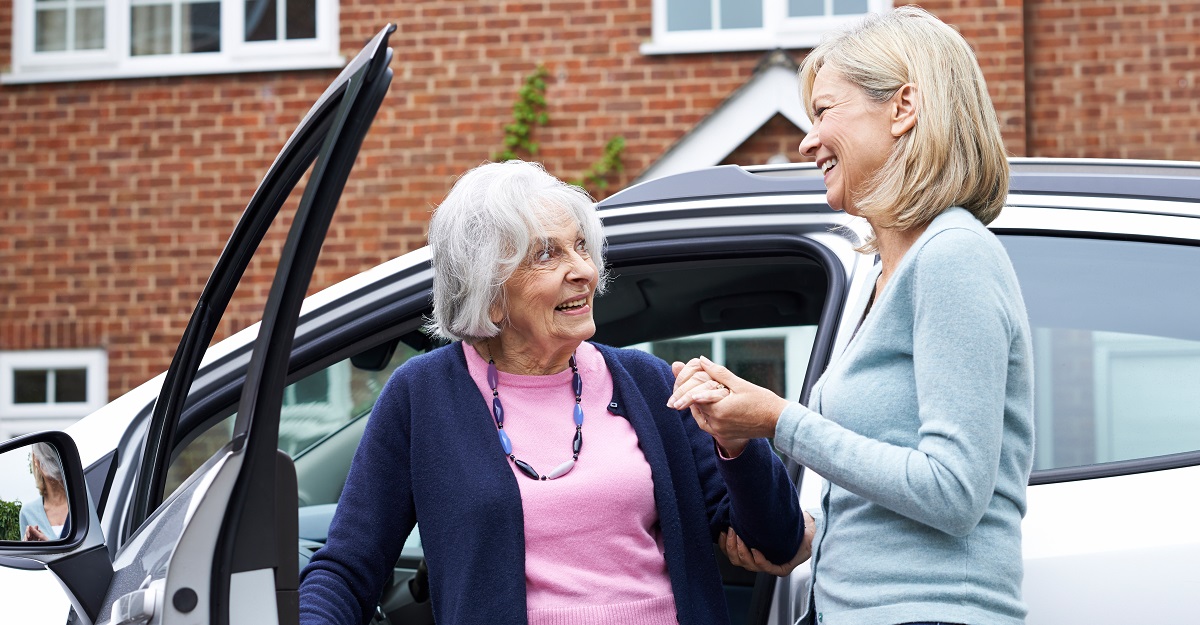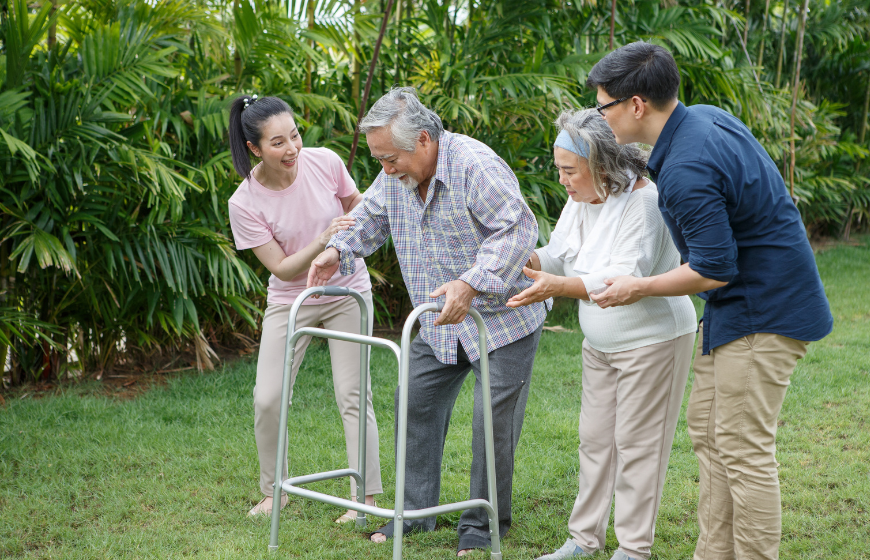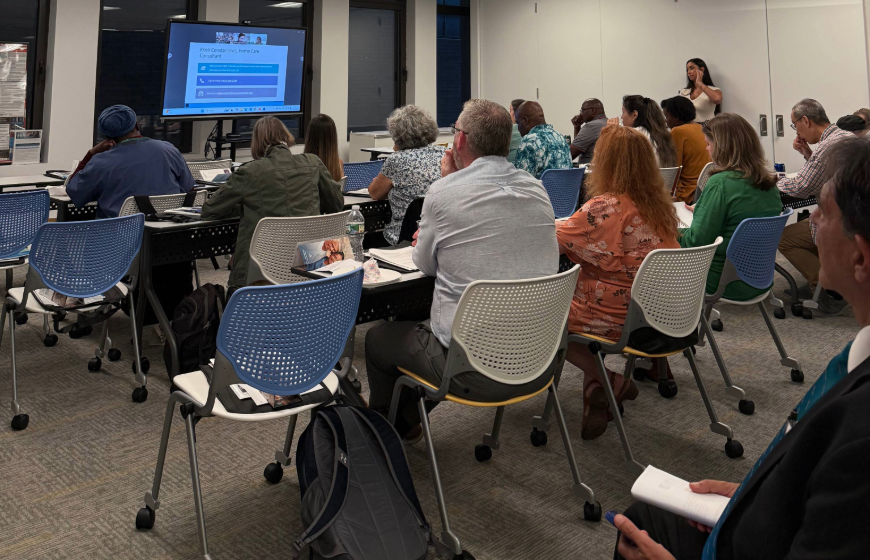A pillar of adulthood is being able to take care of yourself. The ability to meet your day-to-day needs and the autonomy to do so are often taken for granted. However, aging, illness, disability, injury, and disease can challenge this independence, and that’s where ADL care comes in.
What is ADL care? ADL stands for activities of daily living, which are various acts of essential self-care. As such, ADL care is a term used in healthcare for those who are unable to perform these everyday tasks themselves.
Here at Alliance Homecare, we know how important it is for individuals to maintain their dignity in various aspects of daily life, even during the most trying times. ADL care is one of the many at-home services we provide in New York City. Whether it’s a stepping stone for independent living or end-of-life support, the benefits of home care can be vital for a patient’s pride and overall comfort.
Learn more about ADL in-home nurse care below, including which basic activities are included, who may need this type of support, and what to expect from at-home care.
What Everyday Activities Are ADLs?
Functional mobility is the ability to get in and out of bed, sit in and stand up from chairs, walk around, stand independently, and perform various necessary tasks. While activities of daily living vary among individuals, most people require a list of basic ADLs on a daily basis. Then there are instrumental ADLs, which are more personal and lifestyle-based.
Basic ADLs
The most common ADLs fall into the categories of personal hygiene, grooming, and eating.
Personal hygiene and grooming ADLs include:
- Showering or bathing
- Combing or brushing hair
- Brushing teeth
- Getting dressed
- Washing hands
- Toilet hygiene
Activities of daily living involving toilet hygiene include getting to the bathroom, sitting on the toilet, self-cleaning, getting back up. Additionally, filing nails is also a basic grooming and self-care task that can become difficult with age or disability.
Eating ADLs include:
- Self-feeding either by hand or with a utensil
- Chewing and swallowing food
- Retrieving and drinking water
- Cooking or otherwise preparing food
Another category of basic ADLs is homemaking. This includes everyday straightening up, making the bed, taking out the trash, and washing, folding, and putting away laundry. For some, taking prescribed medications is a basic activity of daily living.
Instrumental ADLs
As we mentioned, instrumental ADLs focus more on lifestyle-based tasks, which are unique to an individual. Though they’re not essential for basic functioning, they allow a person to live independently while maintaining a role in their community.
Common instrumental ADLs include:
- Home maintenance
- Bill pay and money management
- Grocery shopping and buying other necessities
- Communicating via phone, text, email, or letter
- Community safety and emergency response
- Health maintenance
Who May Need ADL Care
Typically, those in need of ADL care have declined physically or become mentally impaired. The physical or cognitive impairment is either temporary due to an injury, operation, long-term hospitalization, illness, or indefinite as a result of chronic disease, permanent disability, or age.
Aging is a natural, unavoidable fact of life. As muscular, circulatory, and sensory functions deteriorate, many people lose their ability to perform daily living activities. Additionally, cognitive decline often leads to a reduced capacity for self-care. Certain medications and an unfamiliar living environment can also impact a person’s ability.
With aging adults, the need for basic ADL care isn’t always blatantly apparent, and it often progresses gradually. Many of these elderly individuals don’t have the live-in assistance of a caregiver or anyone readily available to help them perform basic functions.
Evaluating the Need for ADL Care
How do you know if your loved one needs ADL care? Various evaluation tools are used in clinical settings to assess an individual, including the Katz Index of Independence in Activities of Daily Living, the Duke Older Americans Resources and Services (OARS) Program, and the Bristol Activities of Daily Living Scale (BADLS). The Lawton Instrumental Activities of Daily Living (IADL) Scale is often used to evaluate a person’s ability to perform instrumental ADLs.
There are also some condition-specific evaluations for assessing functional recovery of the ability to perform daily living activities following a short-term disability. These questionnaires, programs, indexes, scales, and assessments capture a person’s current and projected mental and physical health condition to determine their capacity to live independently. In some cases, the need for ADL care is determined by observing an individual’s usage of everyday items, like a fork, pen, or toothbrush. Even when an elderly parent refuses help, it is in their best interest to consider whether they are successfully completing their ADLs.
At-Home ADL Care
The need for ADL care doesn’t necessarily imply someone has other medical needs. For this reason, at-home care is often the best solution for caring for your aging parent. Outside of assisted-living facilities, individuals can maintain their dignity and a level of independence while staying as comfortable as possible in their own homes.
Whether the goal is regaining the ability to perform daily living activities, maintain a healthy routine, preserve functional independence, or simply provide high-quality end-of-life care, at-home assistance is an excellent option. Here’s why.
Benefits of In-Home Care
It’s called “home sweet home” for a reason. AARP’s survey (American Association of Retired Persons) showed that nearly 80% of adults 50 and older want to stay in their homes as long as possible as they age. Receiving care in your place of residence provides the undeniable value of familiarity, comfort, and a sense of calm.
The advantages of at-home ADL care include:
- Mental and emotional benefits of living in a familiar environment
- Personalized support and one-on-one attention
- Faster recovery from illness, surgery, or short-term disability
- Independence and peace of mind
- Cost-effective healthcare services
At Alliance Homecare in New York, we work with our patients and their families to ensure the home is a safe, suitable living environment. As one of the many benefits of home care, this allows individuals to remain content while staying in their homes as long as possible.
Home Care in the New York City Metro Area
If you need home care services in New York City or the surrounding metro area, Alliance Homecare is at your service. We’re a fully licensed home care services agency (LHCSA) with industry-leading standards in concierge home care.
We offer self-care assistance for a variety of basic and instrumental ADLs. This includes dressing, grooming, bathing, toileting, grocery shopping, nutritious food selection, meal prep, and feeding. Alliance Homecare also provides in-home physical support, including walking, moving, transferring, and exercise to support functional mobility.
You can count on our at-home care providers for light housekeeping, such as vacuuming, dusting, sweeping, trash removal, and laundry. Additionally, we can help your loved one with medications, errands, and calendar reminders. We can even escort them to appointments if needed. Our team also provides respite care in New York that can give you the freedom to tend to your personal life while still remaining the primary caregiver.
With a deep understanding of the benefits of socialization and human contact, one of the most vital in-home services we provide is companionship. As the importance of companionship for elderly people can not be overlooked, this service includes conversations, reading, and company on daily outings.
Our Commitment to You
At Alliance Homecare, our staff of experienced and highly qualified healthcare professionals includes certified home health aides, registered nurses, and dedicated RN care managers. The Alliance Homecare team works collaboratively to make sure our patients are comfortable and content in the most supportive, caring environment possible.
With a mission to maintain the highest standards of excellence in the home care community, we are committed to respect, compassion, and education. Our staff always upholds the strongest principles of professionalism and integrity. We provide unparalleled care services to our patients and their families while honoring a strict confidentiality code.
Alliance Homecare understands the importance of in-home patient care in New York, and we are here to provide comfortable, personalized ADL support at every level. Our team will review all aspects of our clients’ needs with an in-home assessment and provide a personalized plan of care.
Contact us at any time to learn more about our services. We are available 24-hours a day, 7-days a week, and we would love to hear from you.
External sources:
- https://www.ncbi.nlm.nih.gov/books/NBK470404/
- https://sites.duke.edu/centerforaging/older-americans-resources-and-services/
- https://www.aarp.org/research/topics/community/info-2018/2018-home-community-preference.html
- https://www.investopedia.com/terms/a/adl.asp
- https://academic.oup.com/gerontologist/article/54/1/13/560452
- https://accessmedicine.mhmedical.com/content.aspx?bookid=953§ionid=53375624





